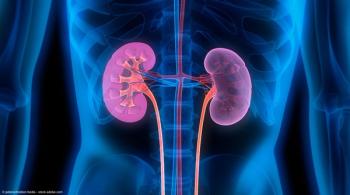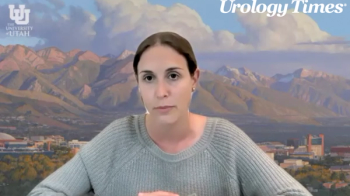
Year in review: 2022 highlights in gender-affirming care

Dr. Butler discusses 2022 milestones from her practice in gender-affirming care and looks ahead to what might be on the horizon for the field in the coming year.
The past year has brought about some incredible strides in urology, spanning everything from advances in treatments to changes in practice management. To celebrate these achievements, Urology Times® is closing out 2022 by highlighting some of the clinical and research milestones from different areas of urology over the past year.
In this iteration, Christi Butler, MD, discusses her practice in gender-affirming care and gives insight as to what might be on the horizon for the field in 2023. Butler is a urologic surgeon at the University of California, San Francisco (UCSF).
Could you describe your clinical practice?
I am a urologist, but also a gender-affirming specialist, so I specialize in genital gender-affirming surgery. I have this nice mix here at UCSF of both general urology and gender surgery. I spend about 50/50 of my time doing general urology and gender-affirming surgery. The majority of my time is spent at our main campus at Parnassus, but I do spend some time at the Gender Affirming Health Program Clinic, which is located over at Montgomery, as well as one day a week on average at Zuckerberg San Francisco General Hospital.
Over the past year, what have been some clinical and research highlights regarding gender-affirming care?
One of the clinical highlights has been being able to work closely with other disciplines. One of the great things about the gender program here is that we get to work closely with departments from medicine, social work, and psychiatry. Surgically, I get to work closely with the gynecology department as well as plastic surgery. That's been a huge highlight, us being able to work together and learn together. We all come from different backgrounds, so being able to learn from each other and pick up on different nuances and help each other out, that's been a huge clinical highlight.
I've now been here for a little over a year, and being able to see the program grow has been exciting. We've gone from not offering these surgeries to now we've done close to 50 of these surgeries just with me involved in them alone. It's been cool to see the program grow.
From a research perspective, I've had the ability to be able to collaborate with a lot of other institutions and departments. Across the [University of California] (UC), we're doing a UC-wide collaboration, working with other gender surgeons, and getting bigger prospective projects off the ground, which is duly needed in this field. We're working with my old fellowship training institution at [Oregon Health & Science University] and getting some of the trans registry programs and research projects off the ground. It's been exciting to be able to work with other gender surgeons across the country.
What are some advances in gender-affirming care that you are anticipating in 2023?
That's a great question. We're always looking for ways to improve our outcomes, especially when we're talking about genital surgery. We're talking about how we can preserve sexual and urinary function. One of the biggest challenges with these surgeries is sometimes we can alter patients' sensations or how they interact with sexual activities. We're trying to figure out how to improve people's relationships with their genitals and like their sexual practices.
A lot of folks can have pain afterwards, so coming up with new protocols. We've been talking with folks about doing some work in that realm and trying to figure out how we can get more consistent outcomes and more data so they can know what methods may work better than others that we don't know yet.
That's what's on the horizon. Everyone's always coming up with new techniques. There's nothing sticking at the moment right now, but stay tuned. We'll see what comes next over the upcoming year.
Could you describe your own research interests?
I have a huge interest in working with trans advocacy, better understanding the barriers that are in place that a lot of trans- and gender-diverse patients face in terms of how to navigate the system, and better mitigate some of these barriers and getting better access to quality care. That's a lot of the work that I've been doing, looking at some of the impacts of legislations and insurances, access to hair removal, and how we can try to improve upon these barriers that are currently in place. That's a lot of the research that I'm currently doing.
Newsletter
Stay current with the latest urology news and practice-changing insights — sign up now for the essential updates every urologist needs.






